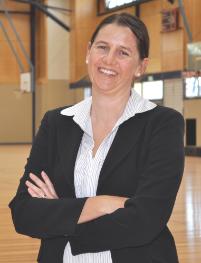Sporting legacy specialist says London 'game enough' to succeed
Published on 12 April, 2012
CQUniversity sporting legacy specialist Dr Danya Hodgetts says the London Olympics could succeed where other major sporting events have failed to capitalise by creating legacy or flow-on benefits...
Speaking on ABC Radio recently, she said some people in the sporting world are predicting what's known as the 'trickle down affect' from the London Olympics.
"That's where the major sports events have an impact on grassroots sport, and people undertaking sporting activities or physical activity in general," she says.
"The theory is that if our sporting elite are doing well, it has an impact on those of us who undertake sport at a much less competitive level. But how does that theory hold up?
"The trickle down affect was one of the original benefits touted in relation to the Sydney Olympics bid, but because the long-term legacy of such events was less understood at the time, we didn't capitalise on it as much as we could have done.
"We'd like to think people watching [sport] are going to get motivated and inspired by athletes performing well, and start undertaking sport themselves, but in reality that doesn't actually happen."
Dr Hodgetts says the sporting world needs to start looking at other ways to use big events to encourage more people to get involved in sport, rather than just sit on the couch and watch it.
"London is focused on participation, and they are running a lot of programs leading up to the Olympics," she says.
"Another thing the London planners are doing is making sure that the volunteers recruited as part of the games are retained after the Olympics. We had that beautiful momentum in Sydney with the volunteers, but it wasn't maintained.
"Another thing London is planning is finding ongoing uses for the facilities built for the games so the volunteers have opportunities to stay involved in sport after the big event.
"This is particularly important in London, where many facilities have had to be built from scratch. Ten years prior to London getting the bid, they actually had fewer Olympic-sized swimming pools than the Gold Coast."
* Dr Hodgetts is an Adjunct Research Fellow with the Centre for Physical Activity Studies, Institute for Health and Social Science Research at CQUniversity.


